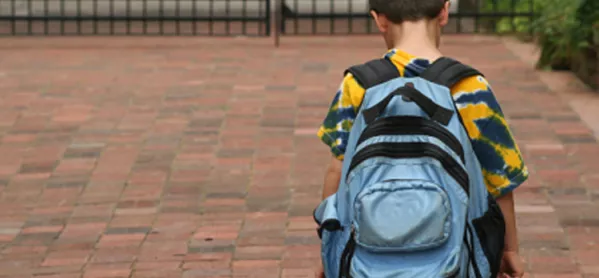- Home
- ‘Alternative provision is at breaking point - our most vulnerable have become the forgotten pupils’
‘Alternative provision is at breaking point - our most vulnerable have become the forgotten pupils’

In a 2010 Civitas report, Tom Ogg and Emily Kaill dubbed alternative provision the “new secret garden” - likening it to James Callaghan’s view in 1976 of a mainstream education system that was off-limits and in need of reform.
The decision by the secretary of state, Justine Greening, to announce a review of alternative provision was as welcome as it was overdue. The subsequent decision by the Education Committee to take evidence in this area, equally so.
Alternative provision is a subject about which many in the North East, and the rest of the UK, have a grievance to air. The Advisory Board of Schools NorthEast has repeatedly raised concerns with alternative provision of education over a sustained period. In our submission to the Education Select Committee, we highlighted that, for our region in particular, there is a lack of consistency in the system.
Alternative provision concerns
While providers of mainstream education in the North East have enormous empathy with alternative provision providers, there have been growing concerns about the efficacy of provision in the face of rapidly growing demand for this service. This includes serious concerns about under-resourcing.
By way of illustration, not a single school leader we consulted with agreed that there are appropriate progression routes back into mainstream education for children in external alternative provision. Likewise, in 10 of the North East’s 12 local authority areas, not a single pupil in alternative provision achieved a C grade in GCSE maths or English in 2015-16.
Speaking at the Conservative Party Conference in October, Justine Greening said: ”[I] will bring forward proposals to ensure that alternative provision is the best it can be - and that the best practice already there in this field becomes the norm, so that it gives all the young people in it the opportunity to fulfil their potential.”
But, as we highlighted in our submission to the inquiry, there are four main areas that need to be addressed before claims such as these can ever be promised.
-
Capacity
Four North East local authorities were among the top 20 recording the highest increases in permanent exclusions across England from 2015-16 to 2016-17. In Redcar and Cleveland, permanent exclusions rose by 214 per cent and in Newcastle-upon-Tyne, 209 per cent. Changing attitudes to pupil exclusion are driving alternative provision to breaking point, with many providers at or exceeding their original capacity. -
Funding
Affordability is a significant concern. In the North East, funding on a per pupil basis is lower than the national average, impacting on the ability of schools to access alternative provision. If the government is serious about addressing the significant problems in alternative provision, it cannot shy away from addressing the issue of funding. -
Structure
The system appears to function when schools in a local authority area work well together as a collaborative team, but can break down when these relationships change. We are concerned that the fragmentation and intensification of competition in the school system has perversely “incentivised” schools to exclude pupils on the grounds of their attainment. This leads to a classic “prisoner’s dilemma”, whereby the self-interest of one leads to worse outcomes for pupils as a whole. -
Accountability
If the direction of travel is toward a “diverse” school system structured around national or regional chains, who is to plan provision and be the custodian of the common good? Accountability measures, as they are currently constructed, give no incentive for inclusivity and often provide a perverse incentive to exclude students. There is concern that in some quarters about the significant change in numbers of pupils on roll from Years 10 to 11.
It has been voiced nationally and within the North East that off-rolling to boost examination outcomes, and subsequent uplifts in Progress 8, is also driving pressure on the system. As Geoff Barton, General Secretary of the Association of School and College Leaders (ASCL) said in his article this week, off-rolling is “unethical, inappropriate and beyond repugnant - the consequences are devastating”. We wholeheartedly agree.
While we welcome that the Department for Education has launched its inquiry into alternative provision, it will take radical thinking to repair and restore this most valuable safety net for children. The system is at breaking point and, despite the best efforts of a diligent and committed workforce, the most vulnerable have become the forgotten pupils.
As Justine Greening said, in alternative provision, there are “some of the most dedicated, inspiring teachers and parents you will ever meet, but this is an area of education that has been set on one side for far too long. There’s a whole lot more that we can and we must do to help make sure this really is a country that works for everyone.”
Fine rhetoric, but it is going to take a phenomenal effort to save alternative provision. It is vital that, in much the same way as in Frances Hodgson Burnett’s novel, this secret garden can be restored and nurtured back to health.
Mike Parker is the director of Schools NorthEast.
Want to keep up with the latest education news and opinion? Follow Tes on Twitter and Instagram, and like Tes on Facebook
Keep reading for just £1 per month
You've reached your limit of free articles this month. Subscribe for £1 per month for three months and get:
- Unlimited access to all Tes magazine content
- Exclusive subscriber-only stories
- Award-winning email newsletters



